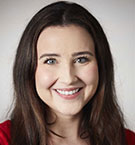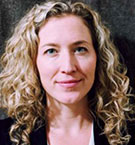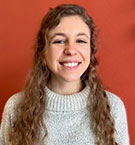DEPARTMENT OF PSYCHIATRY
Laboratory for Youth Behavior
Youth with behavior challenges are often called oppositional, challenging, explosive, difficult, defiant or aggressive. They may display externalizing behaviors such as temper tantrums, defiance, deceit, destruction of property and verbal or physical aggression.
These youth might carry a diagnosis of attention deficit hyperactivity disorder (ADHD), conduct disorder (CD), oppositional defiant disorder (ODD), disruptive mood dysregulation disorder (DMDD), or intermittent explosive disorder (IED). Some display challenging behaviors as part of a larger set of symptoms that have been identified as a mood, anxiety or development disorder.
The MGH Laboratory for Youth Behavior is affiliated with Think:Kids in the Massachusetts General Hospital Department of Psychiatry. We take a broad approach to studying the causes of, and treatments for, challenging behavior during childhood, adolescence, and emerging adulthood.
We explore how, why, and for whom different treatment approaches for disruptive behavior disorders are effective, with a focus on studying the Collaborative Problem Solving (CPS) approach that is disseminated and implemented by Think:Kids.
Through partnerships with organizations that are implementing CPS, we contribute to the field’s knowledge of implementing evidence-based practices in schools, hospitals, and community-based clinical agencies.
Core Group Members

M. Grace Albright, PhD

Sanya Agrawal, MPA

Hallie Carpenter, EdS
Affiliated Group Members and Recent Lab Alumni

Alisha Pollastri, PhD

Lu Wang, PhD

Sammy Stoll, MS
Research Projects
Our research is focused on exploring how, why and for whom different treatment approaches for disruptive behavior disorder are effective, with a focus on the Collaborative Problem Solving (CPS) approach. In addition, the team provides support and consultation on outcome evaluation to clinical and educational partners.
Ongoing and planned research projects in our laboratory cover the following topics:
- Improvements in youth outcomes after the adoption of CPS
- Cost-savings related to decreases in punitive school discipline and restrictive clinical interventions
- Mechanisms of change in CPS treatment
- Comparing methods for improving students’ classroom behavior and time on task
- The relationship between children’s executive functions and their misbehavior at home, school, and in the community
- The impact of various implementation strategies on organization-wide CPS
Research Positions
We may be seeking Research Assistants or Research Scientists for our current projects. These positions report directly to the Principal Investigator. Specific projects assigned to these staff members depend upon education, interest, and experience.
Occasionally, we may have unpaid internships available for current undergraduate or graduate students in a related field who would like to gain research experience by working in our lab for 8 to 12 hours per week.
For all positions, agreement with the mission, vision, and values of Think:Kids is a must. Contact us to see if positions are currently available.
Publications
List of Publications
Below is an abbreviated list of recent publications from our laboratory. For a more comprehensive list of publications on the Collaborative Problem Solving approach, visit the Think:Kids website.
Pollastri AR, Epstein LD, Heath GH, Ablon JS. The Collaborative Problem Solving approach: Outcomes across settings. Harv Rev Psychiatry. 2013; 21: 188-199.
Pollastri, AR, Lieberman, RE, Boldt, S, Ablon, JS. Minimizing seclusion and restraint in youth residential and day treatment through site-wide implementation of Collaborative Problem Solving. Resid Treat Child Youth. 2016; 33: 186-205.
Heath G, Fife-Shaw C., Wang L, Eddy C, Hone M, & Pollastri AR. Collaborative Problem Solving reduces children’s emotional and behavioral difficulties and corresponding parenting stress via two key mechanisms. J Clin Psychol. 2020; 76(7), 1226-1240.
Pollastri, AR, Wang, L, Youn, SJ, & Marques, L. The value of implementation frameworks: Using the Active Implementation Frameworks to guide system-wide implementation of Collaborative Problem Solving. J Community Psychol. 2020; 48(4), 1114-1131.
Wang L, Stoll S, Hone M, Ablon JS, Pollastri AR. Effects of a Collaborative Problem Solving Parent Group on Parent and Child Outcomes. Child Fam Behav Ther. 2022; 44(4):241-58.
Pollastri AR, Wang L, Raftery-Helmer JN, Hurley S, Eddy CJ, Sisson J, Thompson N, Ablon JS. Development and evaluation of an audio coding system for assessing providers’ integrity to Collaborative Problem Solving in youth service settings. Prof Psychology: Research and Practice. 2022.
Pollastri AR, Wang L, Eddy CJ, Ablon J S. An open trial of Collaborative Problem Solving in a naturalistic outpatient setting. Clin Child Psychology & Psychiatry. 2022.
Pollastri AR, Forchelli G, Vuijk PJ, Stoll SJ, Capawana MR, Bellitti J, Braaten EB, Doyle AE. Behavior ratings of executive functions index multiple domains of psychopathology and school functioning in child psychiatric outpatients. Appl Neuropsychol-Child. 2022.
